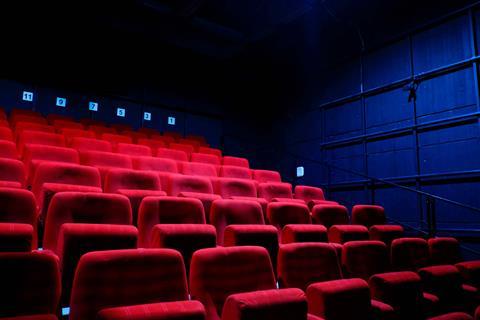
The eight biggest exhibitors in North America will invest more than $2.2bn to modernise and upgrade their theatres over the next three years.
The largest three theatre chains of AMC Entertainment, Regal Cinemas and Cinemark USA, number one Canadian operator Cineplex, and Marcus Theatres Corp., B&B Theatres, Harkins Theatres, and Santikos Entertainment have committed to the initiative and jointly represent more than 1,600 locations in the US and Canada.
Thursday’s announcement comes as industry sources including distribution often lament the poor state of theatre lobbies and auditoriums at a time when the competition for theatre-going audiences is more intense than ever.
The initiative will see funds deployed to instal more comfortable seating, enhance food and beverage offerings, and invest in state-of-the-art air conditioning, lighting, signage and carpeting.
The companies will also add the latest laser projection technology and immersive sound systems, and create family entertainment options such as arcades and bowling.
The last element illustrates a long-held recognition among theatre operators that they need to do more to entice audiences out of the home and keep customers on site.
This year’s leaner pipeline due to the impact of the 2023 Hollywood strikes has exacerbated ongoing concerns over the long-term health of box office.
Michael O’Leary, president and CEO of exhibition’s trade group National Association of Theatre Owners, said that while theatre-going was “an unparalleled entertainment experience”, the competition for audiences was “fiercer than ever”. He added, “This investment reflects that commitment in a tangible way that every moviegoer will see and enjoy.”
Summer box office bounced back after a slow start to finish on $3.7bn, 10.3% behind summer 2023 – and 26.6% behind the summer season of pre-Covid 2019. According to Comscore, as of September 13, North American box office year-to-date trailed last year at the same stage by 13.5%, while it was 25.8% behind 2019.
- Separately, Motion Picture Association said on Thursday that Prime Video and Amazon MGM Studios will become the newest member of the global trade association on October 1. Existing members are Paramount Pictures, Sony Pictures, Universal Studios, The Walt Disney Studios, Warner Bros. Discovery, and Netflix.






![The Brightest SunScreen[Courtesy HKIFF]](https://d1nslcd7m2225b.cloudfront.net/Pictures/274x183/3/5/0/1448350_thebrightestsunscreencourtesyhkiff_312678.jpg)


















No comments yet